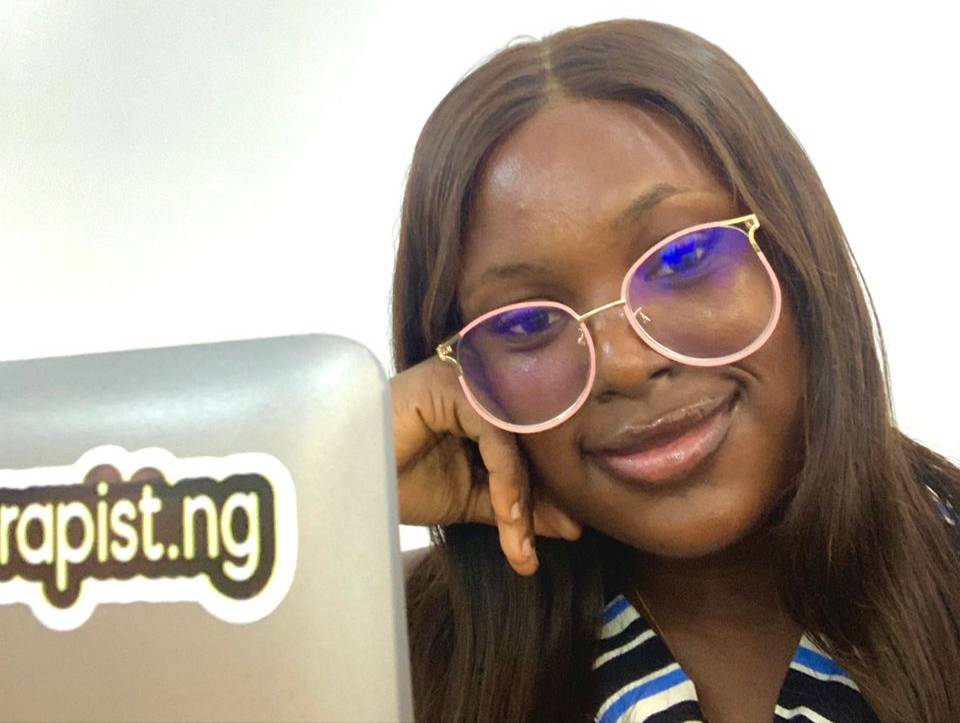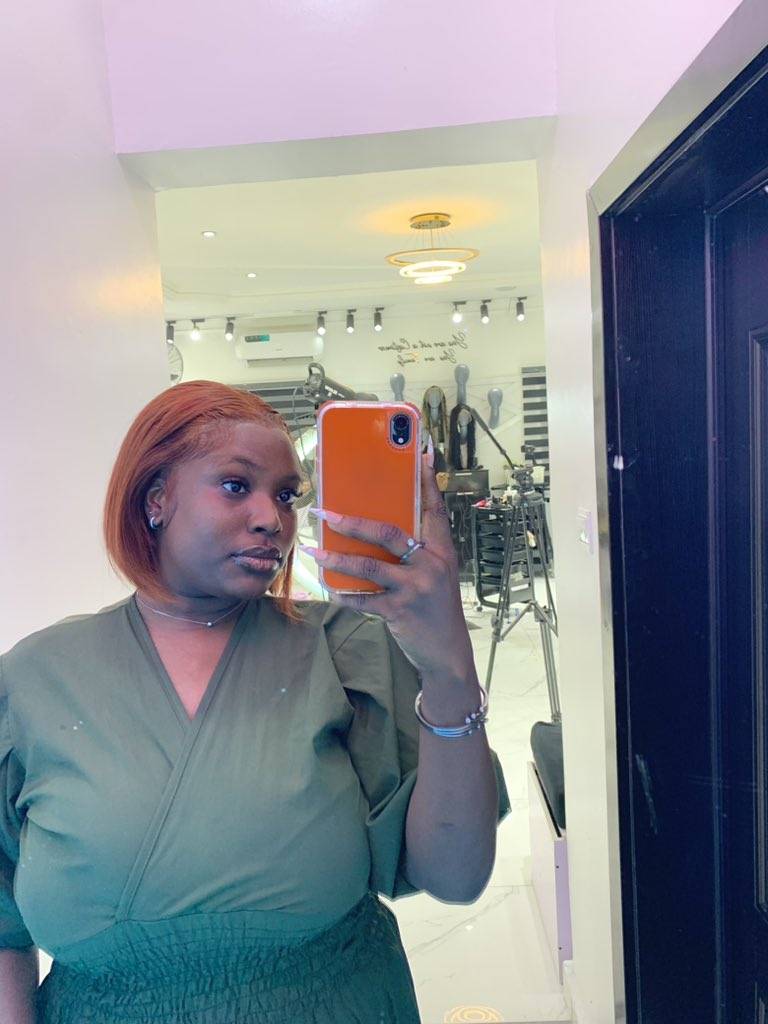Britney Aseroma is a skilled digital marketer and Psychology student. She has spent two years as the Social Media Marketing and Customer Success Manager at mytherapist.ng.
In this interview, Britney shares her experiences working at mytherapist.ng, and her thoughts on the relationship between social media and mental health.
Hi, Britney! It’s an absolute delight to have you here. Before we delve into your interesting journey, kindly introduce yourself.
Hello, my name is Britney Aseroma, and I’m a digital marketer. I’m also reading Psychology at the University of Lagos, Nigeria. My marketing journey began when I was in SS 2. I’d started a blog named Askbritney on WordPress to help people navigate their problems. Then, in 2019, I took a copywriting course.
In 2020, I attended a three-day intensive training, African Girls in Tech, where I took a Digital Marketing course. In 2021, I took the Google Digital Skills certification course to learn about creating, maintaining, and growing a business online.
To gain practical experience, I reached out to friends, offering to help with their social media marketing. This led me to revamp pages, restructure bios, design using Canva, and automate email messages with Mailchimp. Soon, I landed my first job as a social media manager, gaining valuable formal work experience.
Fast forward to 2022, I joined mytherapist.ng, where I’ve been working as a Social Media Marketing and Customer Success Manager for nearly two years.
At mytherapist.ng, I manage social media accounts, create and upload content, and engage with our community. My focus is on helping users have a seamless experience while navigating the mytherapist.ng app—from signing up to using its features.
What drew you to work in social media management within the mental health field, and how has that impacted your perspective on both social media and mental health?
I ventured into social media management because I wanted to change the negativity attached to mental health and mental illness in the Nigerians’ minds.
In Nigeria, the term “running mental” is a deep insult, and it puts an unfair stigma around people with mental health conditions. My goal was to demystify this stigma and make each aspect of mental health easy for Nigérians to understand. Well, my resolve was fueled by my own experiences dealing with mental health issues.
Social media—especially in the scope of mental health—is a deeply sensitive field. How do you handle negative feedback on social media, and what strategies do you use to navigate these situations?
I handle negative feedback by viewing it as an expression of dissatisfaction. Instead of reacting defensively, I assure the individual that I’m on their side and ready to help navigate any issues they have.
Suggested read: Wellness Champion Spotlight: 5 Mental Health Insights from an Interview with Dare Asobele
I also see each critical comment as an opportunity to satisfy our customers and improve. For instance, on Twitter, if a negative comment thread leads to a successful resolution, it’s considered a win for mytherapist.ng.
Responding from a place of help, reassurance, and providing solutions is my approach to addressing any complaint or dissatisfaction from users or customers

From your observations, how has the conversation around mental health on social media changed over the years, and what do you believe has been the driving force behind these changes?
Recently, there’s been a major shift on social media; people are more comfortable discussing mental health issues. A mere 5 or 10 years ago, it was rare to find anyone talking about ADHD (attention deficit hyperactivity disorder), autism, or how they’re depressed.
People usually project the beautiful parts of their lives online, but this shift points to a growing realization that it’s okay to be imperfect and vulnerable. Everyone faces challenges, and it’s okay not to be okay.
More importantly, people know that they’re not alone, and support is available from those who understand what they’re going through and are willing to help, like mytherapist.ng.
I think that the abundance of information online—from journals, personal experiences, extensive mental health blogs like mytherapist.ng, et cetera—have played a crucial rôle in driving this shift in people’s perspectives about mental health.
How do you prioritize self-care while managing the demands of social media and working in the mental health space?
Managing the demands of providing mental health information on social media can be triggering, so I prioritise my self-care by unwinding and giving myself pep talks. I find ways to simmer down the energy, recite affirmations constantly, and do things that excite and ground me, like reading, crocheting, or playing board games.
What tools or strategies have you found most effective in engaging your audience and encouraging meaningful conversations surrounding mental health?
In driving engagement with my audience, I’ve found it effective to identify with my audience’s pain points and share information in a relatable way.
I share my experiences with issues they might resonate with; I encourage them to share their experiences as well. This approach fosters meaningful conversations around mental health.

Are there any misconceptions about managing social media for a mental health-focused brand that you’d like to debunk?
The funniest misconception is that everybody thinks I’m a therapist, but I’m not. Another is that social media managers can’t observe social media breaks, but we do! We understand its importance more than anyone else. Also, social media managers are not ALWAYS on social media; we have full lives offline.
Suggested read: Wellness Champion Spotlight: 5 Mental Health Insights from Chente, the Emotions Doctor
Who do you look up to in the social media and mental health space?
In the social media scene, I admire Dain Walker; his content always encourages me to think outside the box. For mental health, it’s Dr. Ramani Durvasula. Her YouTube videos cover various aspects of mental health, and her approach is so refreshing.
Can you share a project or campaign you’re particularly proud of and how it contributed to mytherapist.ng’s goals in mental health advocacy?
I’m really proud of the Campus Ambassadorship Program. Currently, we have 9 ambassadors in 7 universities across Nigeria. This initiative has been instrumental in advancing mytherapist.ng’s advocacy for mental health and therapy within Nigerian universities, and I’m genuinely excited about the positive impact we can achieve with it.
I’m also really proud of our Mental Health Challenges. This campaign has allowed us to maintain mytherapist.ng’s role as a supportive friend, helping people take charge of their mental health. In fact, we’ve received numerous expressions of gratitude from people who appreciate our efforts in promoting mental wellness.
Are there particular stories or feedback you’ve ever gotten from users or team members that make you feel optimistic about what you do at mytherapist.ng?
People often reach out on Twitter to thank us for our mental health challenges. One moment that stood out for the team was when someone called our hotline to thank us for connecting them with a therapist. Also, a user reached out to me to provide great feedback for her therapist. These instances fuel my optimism about the impact of our work at mytherapist.ng.
If you could collaborate with any celebrity, movie character, or historical figure to craft a social media campaign promoting mental health, who would it be, and what unique perspective do you think they’d bring to the table?
If I could collaborate with any celebrity or character, it would be between Emily Cooper from Emily in Paris and Fela Anikulapo Kuti.
I’d choose Emily Cooper because she’s a very talented marketing specialist, and always has terrific ideas for every campaign that just work out. If we were to work together, it would definitely be a BOMB.
I’d collaborate with Fela because all we need to do is include “go to therapy” in his lyrics, and the entire world will want to download our mobile app. He was like a Jesus that everybody identified with and rooted for.
Conclusion
From breaking stigmas to steering impactful campaigns, Britney’s journey at mytherapist.ng reflects a commitment to destigmatize mental health in Nigeria, fostering a healthier, well informed, and supportive society.
Improving mental health through code–a software engineer’s perspective
Next articleThe Importance of Self-Care in Every Day Life.





